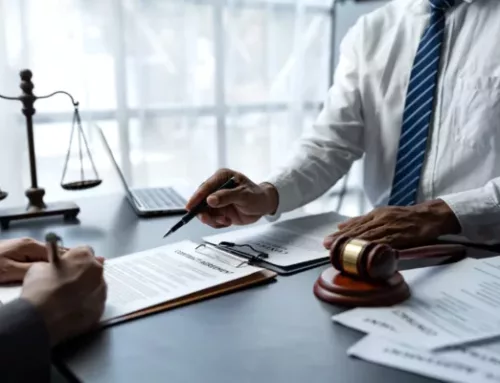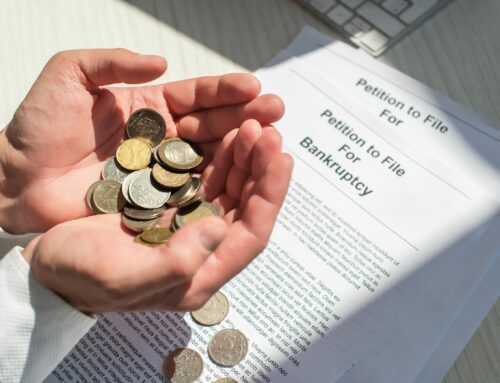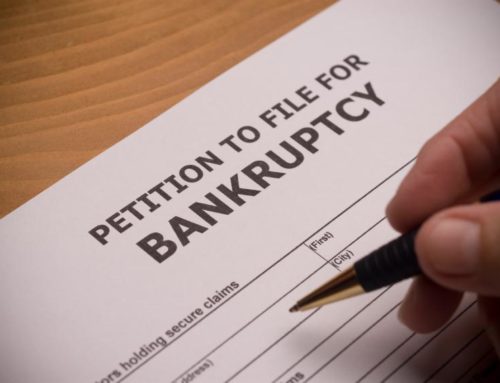Is it really wise to withdraw your savings from the bank before you file for bankruptcy? It may seem like you are outsmarting your creditors by taking out your money from the bank just to hide it from them. Sometimes, it is more prudent to spend your savings before you file for bankruptcy. However, you should take careful thought before doing so. Read on for tips if and when emptying out your bank account is a good move.
Beware! Hiding your Money By Means of Cashing Out Your Savings Account Is A Crime, Known Specifically as “Bankruptcy Fraud”
Bankruptcy fraud has grave consequences. The intent of hiding your money from the bankruptcy trustee through bank withdrawals is considered bankruptcy fraud. You are putting your bankruptcy case at risk. Aside from losing your discharge, you may even be prosecuted for your crime. Therefore, taking money from your savings account just to hide it is not a good move. However, withdrawing your money may be an advantage in the following cases:
1) If applying for exemptions, pulling out your savings can be advantageous.
In Chapter 7 bankruptcy, your trustee can liquidate your nonexempt property and use the proceeds to pay your creditors. WIth bankruptcy exemptions, you can save your residential or commercial property. For as long as your asset can be qualified for the exemption, you can keep it. Take note that exemptions vary from state to state. Look into your state’s rules on exemptions before filing you bankruptcy case, if you do not want your savings to be taken by the trustee. Usually, you will need to ask for exemptions specific to bank accounts to ensure that your savings account is secured.
If exemption of your savings account is not possible, you may want to do some exemption planning before your file your case. As a whole, exemption planning is permitted to some degree as long as it is done in good faith and within reasonable boundaries. You may want to spend your savings on basic needs or to purchase an exempt property. For example, West Virginia exempts motor vehicles which cost a certain amount. As such, you may use your savings to buy a car that cost within the allowable exemption amount.
Be cautious in exemption planning because abusing it may be misconstrued as bankruptcy fraud (especially if it was not done in good faith). Each bankruptcy court has its own rules regarding just how much exemption planning is acceptable. To be sure, it is better to consult an experienced bankruptcy attorney in West Virginia before converting any nonexempt assets into exempt ones. Our bankruptcy attorneys at Thomas E. McIntire and Associates, L.C. may be able to assess your situation and recommend the best course of action for your assets, in general, and your savings accounts in particular.
2) If you are aware that the bank will freeze your account, withdrawing your money may be the best step to take.
Bank accounts are not automatically frozen when you file for bankruptcy. However, it can happen. Some banks and credit unions may freeze your accounts once you file for bankruptcy. Most likely, you will be required to present proof that the funds in your accounts are exempted from bankruptcy before they can let you get your hands on them.
Moreover, if you have outstanding debt from the bank or credit union, they can ask the bankruptcy court to freeze your account and even demand payment using the money saved in your account. For this reason, it is better to just transfer your funds to another bank or withdraw your money altogether. Be mindful, though, that even if you keep the funds as cash, you still need to declare it during a bankruptcy filing.
Contact a West Virginia Bankruptcy Attorney Today
Talking to an experienced bankruptcy attorney in West Virginia may help in assessing what best fits your situation. One of the best bankruptcy attorneys in West Virginia is at Thomas E. McIntire and Associates, L.C. If you need help with your bankruptcy concerns, now is the best time to get in touch with them. Call us now for a free initial case evaluation.





